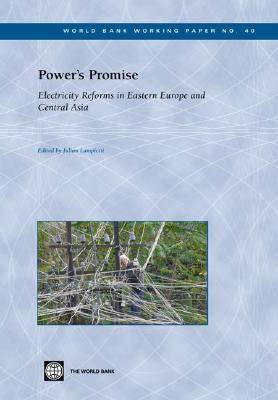Power's Promise is part of the World Bank Working Paper series. These papers are published to communicate the results of the Bank's ongoing research and to stimulate public discussion. The socialist social compact in the Europe and Central Asia region resulted in publicly owned, vertically integrated, and highly centralized energy infrastructure that was inefficient yet highly equitable. The collapse of the Soviet Union brought about a gamut of reforms including major changes in the energy sector. This title analyzes the fiscal, efficiency, social and environmental impact of power sector reforms in the context of its expected benefits in seven countries in the Europe and Central Asia region. It finds that the electricity sector financial deficit declined in all countries, albeit for different reasons. From an efficiency point of view, the data collected on the cost of generation, system loss collections, and operational efficiency are ambiguous, and call for improved transparency and accountability in record-keeping. Despite continuing problems with losses, collection rates, and staffing, overall revenue per kilowatt-hour has increased in almost all countries.
Electricity spending as a share of income increased, especially for the poor, while consumption stayed the same, suggesting a rising burden on lower income households. Further, reforms did slightly improve energy efficiency in power plants though its impact on ambient air quality is difficult to quantify with existing data. The title also outlines evidence of unintended environmental costs with the switch to dirty fuels as a response to rise in electricity tariffs. Also contains a CD-ROM containing three related previously published titles.
- ISBN10 0821359002
- ISBN13 9780821359006
- Publish Date 30 June 2004
- Publish Status Out of Print
- Out of Print 16 October 2015
- Publish Country US
- Imprint World Bank Publications
- Pages 94
- Language English
